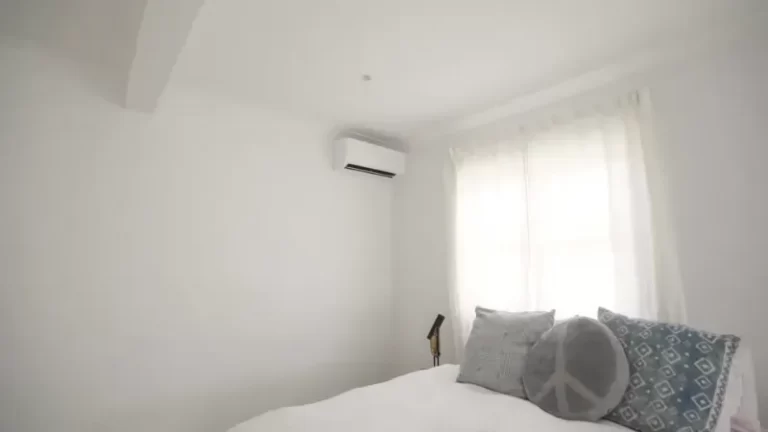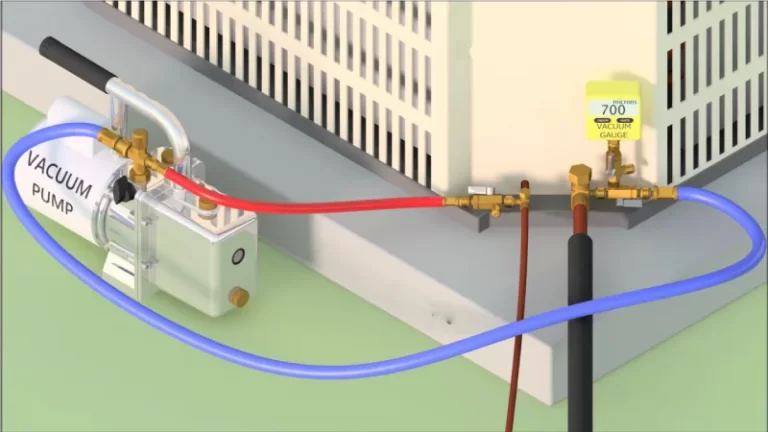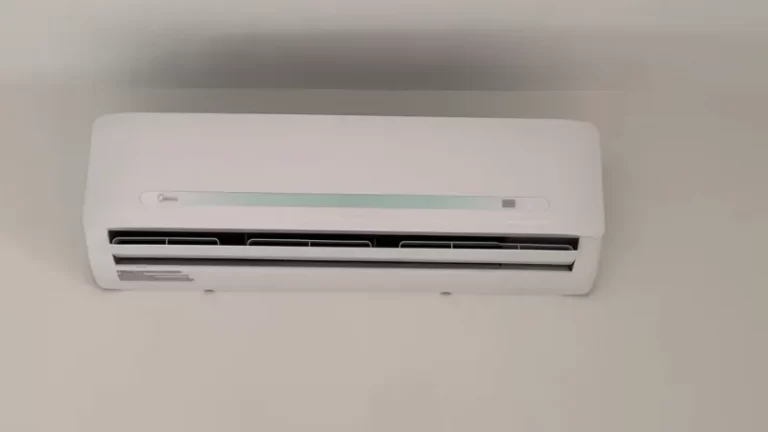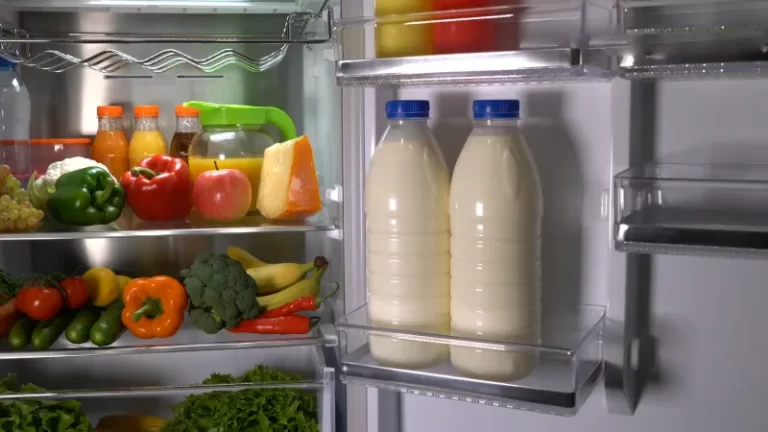How To Dispose Of Air Conditioner Massachusetts?
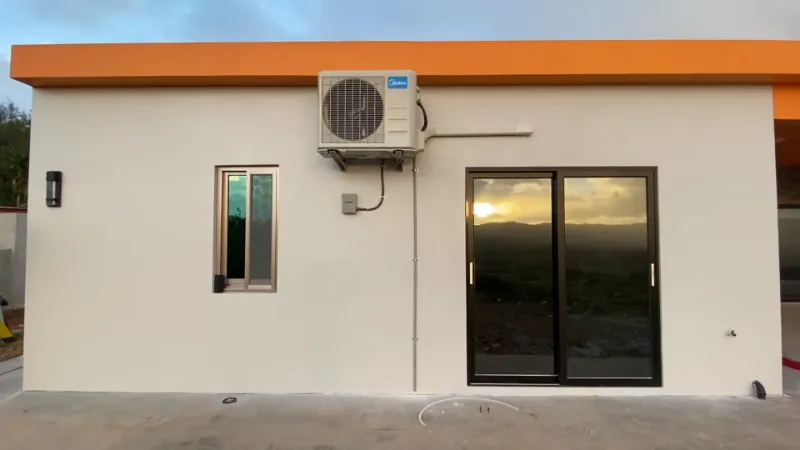
Air conditioners are an important part of the Massachusetts summertime experience. They provide us with a much-needed respite from the heat and humidity. However, when it comes time to dispose of an old air conditioner, it’s important to do it responsibly.
In this article, we’ll discuss the proper ways to dispose of an air conditioner in Massachusetts and the steps you should take to ensure your old unit is disposed of in an environmentally friendly manner.
You'll Learn About
How To Dispose Of Air Conditioner Massachusetts?
An air conditioner is a device that removes heat and moisture from the air inside a building. It works by circulating cool air through the room, and then exhausting warm air outside. Air conditioners come in various sizes and types, ranging from window units to large central systems.
They are used to cool homes, offices, and other commercial spaces.
Why Should Air Conditioners Be Disposed of Properly
Air conditioners contain refrigerants that can be harmful to the environment if released into the atmosphere. When air conditioners are disposed of improperly, these refrigerants can leak into the air and damage the ozone layer.
Additionally, disposing of an air conditioner improperly can be a violation of local, state, and federal laws.
Massachusetts Regulations on Air Conditioner Disposal
In Massachusetts, it is illegal to discard or abandon any appliance or equipment containing refrigerants. This includes air conditioners. It is also illegal to vent, release, or dispose of any type of refrigerant without a permit.
To properly dispose of an air conditioner in Massachusetts, the owner must contact a qualified technician to handle the job.
Steps for Disposing of an Air Conditioner in Massachusetts
- Contact a qualified technician to remove the air conditioner and dispose of it properly.
- Remove the Air Conditioner From the Window or Wall, if Applicable.
- Ensure that all refrigerants are discharged and recovered in accordance with state and federal regulations.
- Place the Air Conditioner in an Appropriate Waste Container for Disposal.
- Contact the local waste management authority for further instructions on proper disposal.
Disposing of an air conditioner in Massachusetts requires following the state’s regulations to ensure that refrigerants are not released into the atmosphere. It is important to contact a qualified technician to remove the air conditioner and handle the disposal process.
Following these steps will help to protect the environment and ensure that air conditioners are disposed of properly.
What is the Scrap Value of an Ac Unit?
Scrap value is the monetary worth of a discarded or used item. It is the value of the item when it is sold for its parts or materials, rather than for its original purpose. For example, the scrap value of an air conditioner (AC) unit is the amount of money an individual or company can get for it when it is sold for parts or materials.
Factors That Determine the Scrap Value of an Ac Unit
The scrap value of an AC unit will depend on a variety of factors, including the type and condition of the unit. If the unit is newer and in good working condition, it will likely fetch a higher scrap value than a unit that is old and in need of repair.
In addition, the type of AC unit will also affect the scrap value. Central air conditioners tend to have a higher scrap value than window units.
How to Maximize the Scrap Value of an Ac Unit
The best way to maximize the scrap value of an AC unit is to sell it as a complete unit, rather than taking it apart and selling it for its parts. This is because complete units typically have a higher scrap value than individual parts.
Additionally, if the unit is in good working condition, it can be sold for a higher price than a unit that needs repairs.
Where to Sell an Ac Unit for Scrap Value
The best place to sell an AC unit for scrap value is to a scrap metal dealer or recycler. These companies are in the business of buying and selling scrap metal, so they are likely to offer the best prices for your AC unit.
Additionally, some local salvage yards may also be willing to purchase AC units for scrap value.
Benefits of Selling an Ac Unit for Scrap Value
The main benefit of selling an AC unit for scrap value is that it allows you to make money from an otherwise unusable item. Additionally, selling the unit for scrap value helps keep it out of landfills, which is beneficial for the environment.
Finally, selling the unit for scrap value also frees up space in your home, as you no longer have to store and maintain an unused AC unit.
How Do I Dispose of Old Conditioner?
Before disposing of an old conditioner, it is important to check the label of the product to see what type of plastic it is made of. Depending on the material, it may need to be recycled or disposed of in a specific manner.
For example, if the product is made of polypropylene, it can be placed in the recycling bin, while other plastics may need to be disposed of in the trash.
Rinsing Out the Bottle
Before recycling or disposing of an old conditioner bottle, it is important to rinse it out. This will help to ensure that any residual product is removed, making the bottle easier to recycle or dispose of.
It is also important to remove any pumps or other dispensers from the bottle before disposing of it.
Recycling
Most plastic conditioner bottles can be recycled as long as they are clean and free of any residue. It is important to check with your local recycling center to see what type of plastic they accept and if they require any additional steps before recycling.
Some centers require that the plastic be separated by type, while others may accept all types of plastic.
Reusing
Reusing an old conditioner bottle can be a great way to save money and reduce waste. Many people find that an old conditioner bottle can be reused for a variety of different purposes, such as storing shampoo, conditioner, or other hair products.
Additionally, an old conditioner bottle can also be used to store other household items such as craft supplies or office supplies.
Disposing of the Bottle
If the bottle is not suitable for recycling or reusing, it should be disposed of in the trash. It is important to ensure that the bottle is completely empty before throwing it away. Additionally, it is important to ensure that any pumps or other dispensers that were attached to the bottle are also disposed of in the trash.
Can You Dump Conditioner Down Drain?
You should never pour conditioner down the drain or toilet. It can lead to clogs, backups, and other plumbing problems. Conditioner is a thick, viscous substance that can adhere to pipes. It can also create slippery surfaces and attract debris.
The best way to dispose of old conditioner is to throw it away in the trash. You can also recycle the container if it’s made from plastic or metal. Never pour conditioner into a sink or drain even if it has a garbage disposal.
This can cause a buildup of residue and particles in the disposal. It can also damage the blades and cause them to wear out faster. The best way to get rid of old conditioner is to take it to a hazardous waste facility.
Are Old Coolers Recyclable?
Old coolers are highly recyclable items, particularly those made out of metal. Although the recycling process for coolers may vary depending on the material and condition of the cooler, it is often possible to recycle them in some way.
In this article, we will discuss the different ways to recycle old coolers.
What Can Be Recycled
Most coolers are made out of either plastic or metal, and both can be recycled. Plastic coolers can be recycled through a plastic recycling program. Metal coolers can be recycled through a metal recycling program.
Some coolers may also have other components, such as foam insulation or rubber gaskets, that may need to be removed before the cooler can be recycled.
How to Recycle
The process for recycling coolers will vary depending on the material and condition of the cooler. Plastic coolers can usually be recycled through a local plastic recycling center. Metal coolers can usually be recycled through a local metal recycling center.
If the cooler is in good condition, it may be possible to donate it to a local thrift store or charity.
Freon Removal
If the cooler contains Freon, it must be removed before it can be recycled. Freon is a chemical used in refrigerators and freezers to keep food and beverages cold. It is a hazardous chemical, and if not handled properly, it can be dangerous to people and the environment.
To remove Freon from a cooler, you will need to contact a certified appliance recycler. They will be able to safely remove the Freon and then recycle the cooler.
Old coolers are highly recyclable, particularly those made out of metal. Plastic coolers can be recycled through a plastic recycling program, while metal coolers can be recycled through a metal recycling program.
If the cooler contains Freon, it must be removed by a certified appliance recycler before it can be recycled. Recycling old coolers is an easy and environmentally-friendly way to dispose of them.
Do Home Air Conditioners Recycle Air?
Air recycling is the process of reusing air that has already been cooled or heated in an air conditioning system. This process is done to save energy and reduce the amount of air that is released into the environment.
Air recycling is an important part of modern air conditioning systems.
How Does Air Recycling Work
Air recycling works by using a fan to draw air in from outside the home and then runs it through a series of coils. The coils contain a refrigerant that cools the air, and the cooled air is then released back into the home.
The process is repeated over and over, which helps to maintain a constant temperature inside the home.
Benefits of Air Recycling
Air recycling has several benefits. The most obvious is that it helps to reduce energy consumption. Since the air is already cooled or heated, the system does not need to expend as much energy to cool or heat the air.
This results in lower energy bills. Additionally, air recycling helps to reduce air pollution. By reusing air, fewer pollutants are released into the environment. Careful about placing other items like the water heater that can affect your AC performance.
Drawbacks of Air Recycling
Though there are many benefits to air recycling, there are also drawbacks. One major drawback is the fact that air recycling can lead to a decrease in air quality. This is because the air has already been recycled several times, so it may contain more pollutants than the air outside.
Additionally, air recycling can cause a buildup of moisture in the home, which can lead to mold growth.
Air recycling is a process that has both benefits and drawbacks. It helps to reduce energy consumption and air pollution, but it can also cause a decrease in air quality and an increase in moisture levels in the home.
It is important to weigh these pros and cons when determining if air recycling is the right choice for your home.
To Recap
Properly disposing of an air conditioner in Massachusetts is important for both the environment and for personal safety. When disposing of your old unit, make sure to take all the necessary steps, such as properly cleaning and draining the unit, recycling any parts that can be reused, and bringing the unit to a certified hazardous waste facility.
Doing so will help ensure that your old air conditioner is disposed of in an environmentally friendly manner and that you don’t put yourself in danger.

